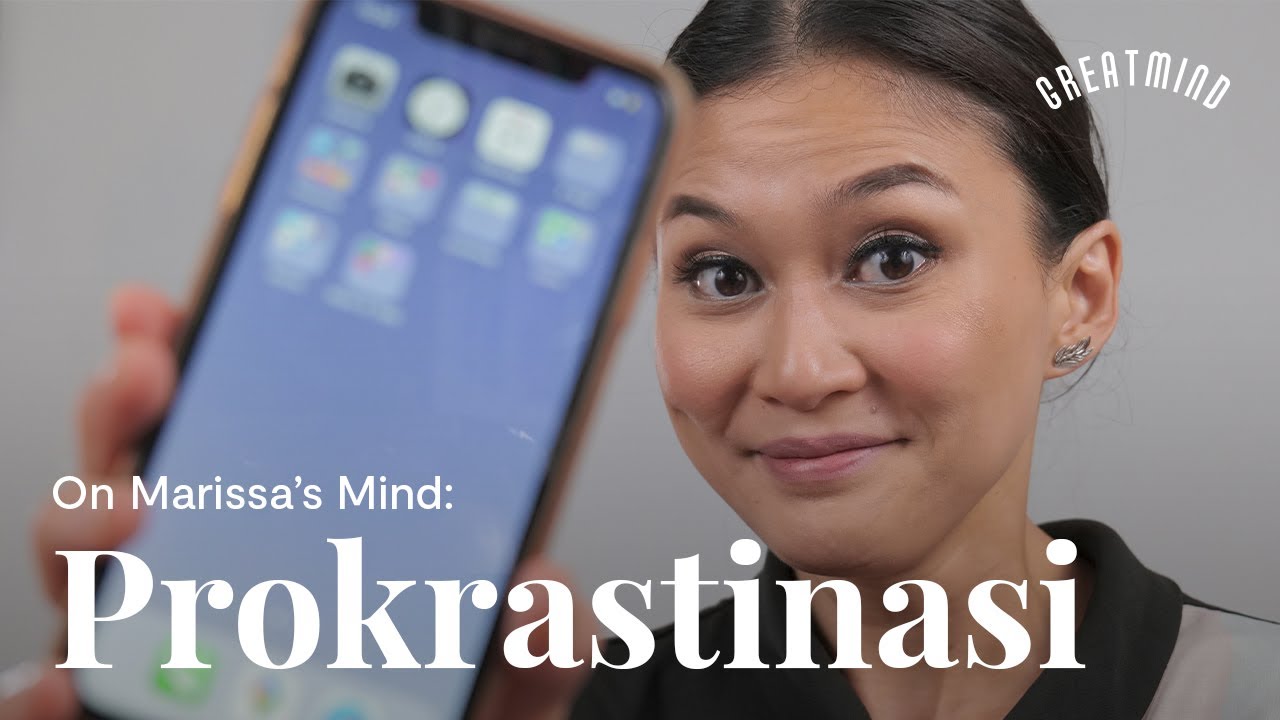Procrastinação é um hábito, mude-o! | Academia Cerebral por André Buric
Summary
TLDRThe video script focuses on the issue of procrastination, challenging the common perception that it stems from a lack of willpower or interest. Instead, it is presented as a habit that can be both formed and unlearned. The speaker, André, introduces his method of 'reprogramming the brain' to break the cycle of procrastination. He emphasizes the importance of understanding the biological barriers of the brain and learning to overcome them. André shares practical steps to replace the habit of procrastination with a new habit of productivity. He illustrates this with the metaphor of training a puppy to perform an action through positive reinforcement. The key takeaway is to delay rewards until after completing necessary tasks, thus retraining the brain to associate pleasure with effort. The speaker encourages viewers to join his 'brain programming journey' for a deeper understanding and to gain more tools to control their cognitive processes.
Takeaways
- 😀 Procrastination is not just a lack of willpower or interest, but a habit that can be changed.
- 🧠 The speaker introduces the concept of 'reprogramming your brain' to change ingrained habits like procrastination.
- 📚 The transcript mentions a series called 'Diaries of the Brain Programming Journey' which aims to help understand the brain's workings.
- 🛑 A warning is given about the 'Four Brain Barriers' that naturally restrict actions, suggesting understanding these can help overcome them.
- 🔗 There is a call to action to join a 'brain reprogramming journey' through a provided link for further understanding.
- 🐶 An analogy is made comparing the formation of habits to training a puppy, emphasizing positive reinforcement.
- 🚫 The transcript suggests that procrastination is often reinforced by rewarding oneself before completing a task, which should be avoided.
- 🔄 To combat procrastination, the process should be inverted, where one should only reward themselves after completing the task.
- 💡 The idea is presented that by delaying gratification, the brain learns to associate effort with pleasure, leading to productive habits.
- 🌟 Personal stories are shared to illustrate the transformation individuals have undergone by understanding and altering their habits.
- 🔗 The transcript ends with an invitation to subscribe and stay updated for more insights into brain function and habit formation.
Q & A
What is the main topic of the video script?
-The main topic of the video script is procrastination and how it can be overcome by understanding it as a habit that can be reprogrammed.
Who is André Tal and what does he offer?
-André Tal is the creator of the 'Reprogram Your Brain' method, and he offers insights and strategies to understand and improve the functioning of the brain to work in one's favor.
What is the 'Jornada de Programação Cerebral'?
-The 'Jornada de Programação Cerebral' or 'Journey of Brain Programming' is a series of lessons that teach viewers about the brain's functioning and how to reprogram it to overcome habits like procrastination.
What are the 'quatro barreiras cerebrais' mentioned in the script?
-The 'quatro barreiras cerebrais' or 'four brain barriers' refer to biological barriers that restrict our actions due to the brain's nature. Understanding these barriers can help in overcoming them.
Why is it important to understand the concept of procrastination as a habit?
-Understanding procrastination as a habit is important because it allows individuals to recognize that it can be changed or replaced with more productive habits, rather than being a fixed trait.
What is the practical example given to illustrate how habits are formed?
-The practical example given is training a puppy to give its paw. By providing a treat (positive reinforcement) after the desired action, the puppy learns to associate the action with the reward, thus forming a habit.
How does the script suggest reversing the habit of procrastination?
-The script suggests reversing the habit of procrastination by inverting the process of rewarding oneself. Instead of seeking immediate gratification before completing a task, one should delay the reward until after the task is done.
What is the significance of dopamine release in the context of the script?
-The release of dopamine is significant because it is associated with pleasure and reward. By delaying rewards until after completing a task, the brain learns to associate the release of dopamine with effort and productivity.
What is the role of the 'Acesse VIP' link mentioned in the script?
-The 'Acesse VIP' link is a call to action for viewers to access the first lesson of the 'Jornada de Programação Cerebral', which will provide them with foundational knowledge about the brain barriers.
How does the script encourage viewers to apply the insights from the video?
-The script encourages viewers to apply the insights by asking them to consider what rewards they will delay until after completing their tasks, thus inverting the procrastination habit.
What is the final message or call to action for viewers in the script?
-The final message is an invitation for viewers to subscribe and turn on notifications to receive daily updates and insights on understanding and controlling the brain's powerful capabilities.
Outlines

This section is available to paid users only. Please upgrade to access this part.
Upgrade NowMindmap

This section is available to paid users only. Please upgrade to access this part.
Upgrade NowKeywords

This section is available to paid users only. Please upgrade to access this part.
Upgrade NowHighlights

This section is available to paid users only. Please upgrade to access this part.
Upgrade NowTranscripts

This section is available to paid users only. Please upgrade to access this part.
Upgrade NowBrowse More Related Video

Skillopedia - 08 effective ways to overcome procrastination - Time management skills

Watch Oprah’s Aha Moment on Weight Loss

Why Can’t I Motivate Myself To Work?

Avoid These MISTAKES At All Costs | Procrastination Se Kaise Bache | Digital Azadi

Why you procrastinate even when it feels bad

On Marissa's Mind: Prokrastinasi
5.0 / 5 (0 votes)